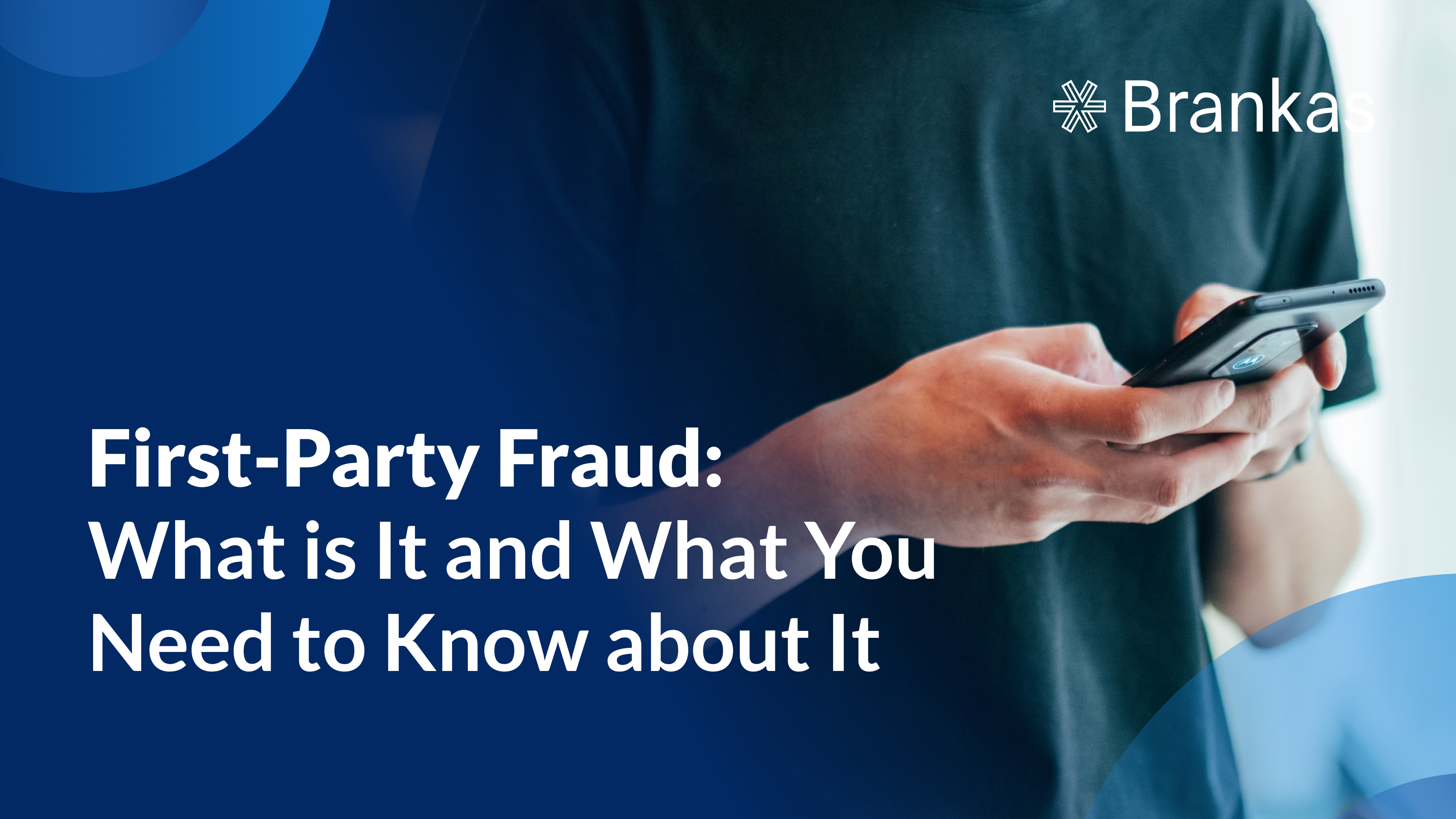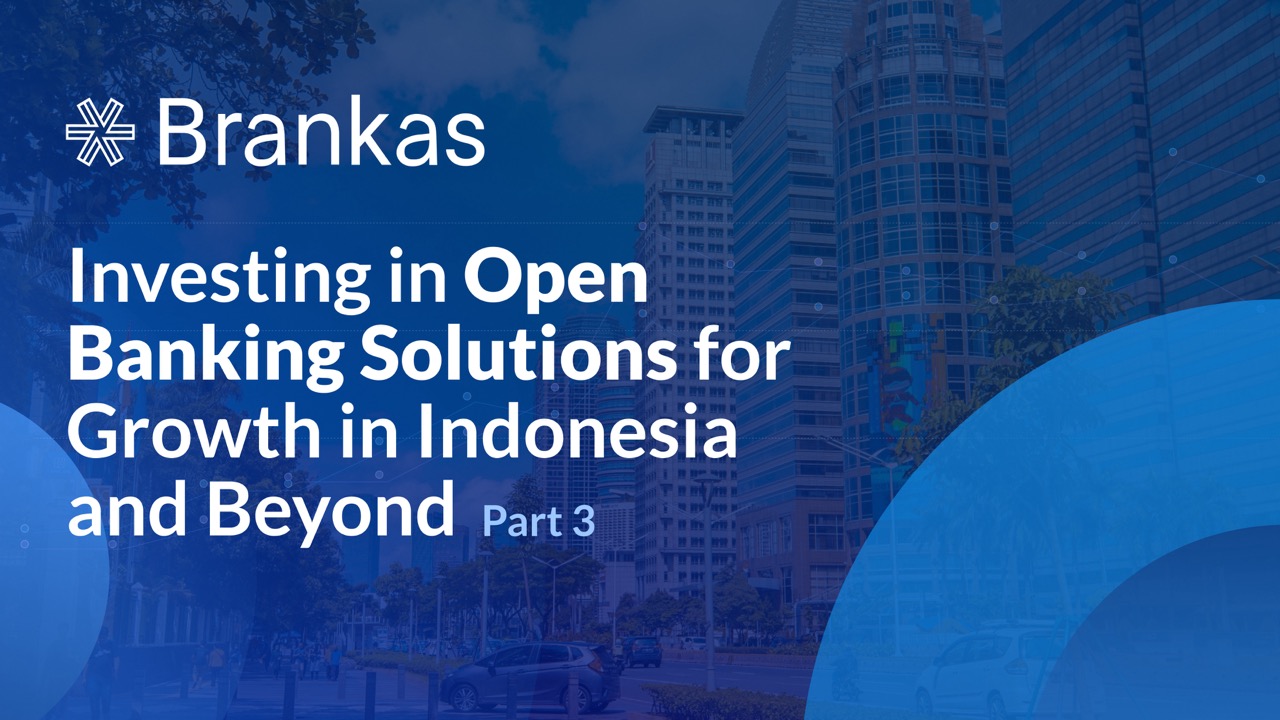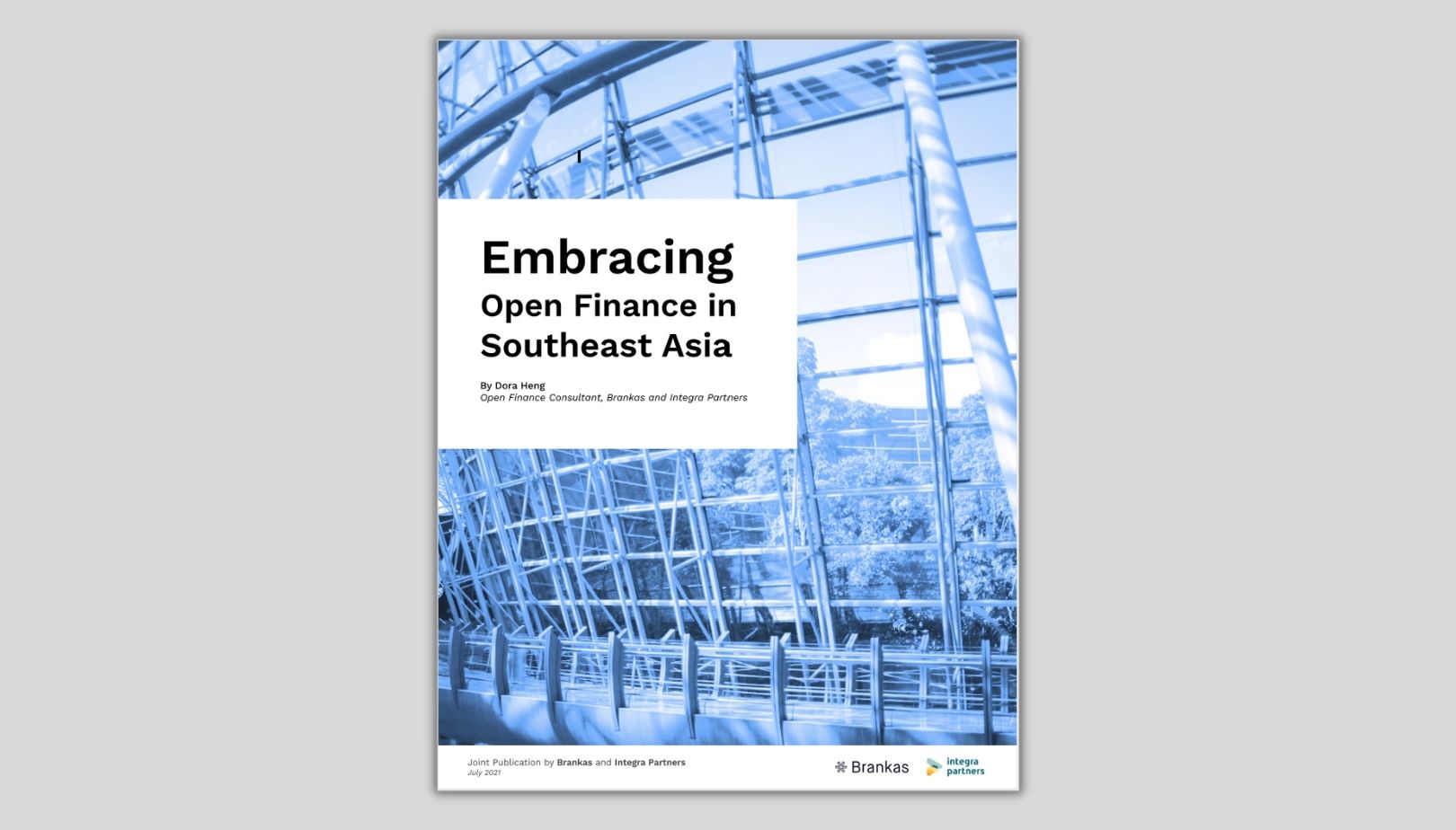
Understanding the intricacies of chargebacks and refunds is paramount for merchants. Chargebacks and refunds play crucial roles in customer satisfaction and maintaining a positive business image.

Also read: Investing in Open Banking Solutions for Growth in Indonesia and Beyond (Part 2)
Micro, small, and medium enterprises (MSMEs) are crucial parts of any economy’s backbone. They fuel innovation and serve as engines for job creation, rendering them indispensable contributors to a nation’s economic advancement. Securing the necessary financial resources for business expansion, however, often poses challenges for SMEs. The emergence of open banking has emerged as a remedy for Indonesia’s 62.9 million MSMEs. Bank Indonesia’s strategic initiative in digital transformation (Indonesia Payment System Blueprint 2025) integrates small economic entities into the digital fabric of today’s business landscape. As these MSMEs navigate through digital finance, they are not only generating data but also sowing the seeds of innovative business solutions. This growth trajectory aims to uplift these enterprises to heightened economic engagement. In a rapidly evolving financial landscape, this orchestrated effort promises to resonate as a potent catalyst for progress.
Open banking presents transformative possibilities for Indonesia’s MSMEs. These economic cornerstones stand to gain substantially from the democratization of financial services. Open banking’s accessible ecosystem and data-driven solutions promise to bridge the longstanding financial gaps, allowing MSMEs to access tailored financial products, streamline transactions, and unlock growth opportunities. As open banking aligns with Bank Indonesia’s forward-looking blueprint, it extends a digital lifeline to MSMEs, empowering them to navigate the modern economic landscape with enhanced agility and resilience. These are the advantages that open banking brings to MSMEs:
Open banking allows MSMEs to connect their financial accounts with various institutions, providing a consolidated view of their financial information in one place. This simplifies account management, enabling business owners to monitor their finances more effectively, access transaction history, and view balances in real-time. The convenience of managing accounts through a single platform saves time and reduces the administrative burden for MSMEs.
Open banking facilitates the integration of payment services into the digital ecosystem of MSMEs. By leveraging open APIs, these businesses can offer customers a variety of payment options, including mobile wallets, online banking, and e-commerce platforms. This diverse range of payment methods enhances customer satisfaction and expands the market reach of MSMEs, driving higher sales and revenue.
Open banking provides MSMEs the opportunity to share their financial transaction data securely with financial institutions. This data can offer a comprehensive view of the business’s financial health and performance. Lenders can analyze this real-time data to make more accurate and informed credit decisions, granting loans that are tailored to the specific needs and capabilities of each MSME.
The availability of transaction data through open banking opens doors to a wider range of financing options for MSMEs. Traditional and alternative lenders can use this data to offer innovative financial products, such as short-term loans, working capital credit, and invoice financing. This increased access to funding supports MSME growth and expansion plans.
Highlighted Brankas Use Case:
Right Choice Finance Corporation (RCF) is a non-bank loan provider in the Philippines for individuals and businesses. Through the implementation of Brankas Bank Data, RCF has achieved swift and secure access to dependable borrower information, streamlining the sharing of financial data by borrowers. This integration enhances RCF’s loan origination process, ultimately elevating the borrower’s journey. With this enhancement, borrowers can now enjoy a hassle-free experience, obtaining their desired loan amounts promptly and efficiently. This efficiency empowers borrowers, enabling them to achieve their goals with greater speed and ease. Read more about how Brankas is helping Right Choice Finance improve their repayment experience.
Open banking empowers MSMEs to offer their customers a variety of digital payment options. These options may include QR code payments, online transfers, and mobile app payments. By integrating these payment methods, MSMEs cater to diverse customer preferences, ultimately enhancing the customer experience and encouraging repeat business.
Open banking enables real-time access to financial data, allowing MSMEs to monitor cash flow more effectively. With this visibility, business owners can track incoming and outgoing transactions, predict cash flow fluctuations, and make informed decisions to optimize their financial operations. This capability is particularly crucial for MSMEs with limited resources, as it ensures better financial stability and planning.
Doku is a top payment technology provider in Indonesia, offering businesses a convenient method for receiving online payments. They provide innovative solutions for e-commerce, finance, and telecommunications. What sets Doku apart is its unwavering commitment to keeping transactions safe and secure. They have earned trust by implementing top-notch security measures to protect data and prevent fraud. Doku is widely favored by Indonesian MSMEs because it enables them to accept online payments effortlessly, offers over 20 payment choices, and has a speedy setup process.

Innovative technologies drive the engine of open banking. These technological advancements collectively shape a dynamic financial ecosystem, fostering innovation, accessibility, and security.
Central to open banking are Application Programming Interfaces (APIs), a set of protocols facilitating seamless communication between diverse software applications. APIs enable financial institutions to securely share customer data and services with authorized third-party providers. This collaborative approach fosters the creation of novel financial products and services while ensuring data privacy and security.
APIs empower banks to offer controlled access to their systems and data. This dynamic enables third-party developers to design innovative applications and services that harness the capabilities of financial institutions. This symbiotic relationship spurs real-time payment initiation, account aggregation, and personalized financial tools, elevating the options available to MSMEs and enhancing their financial interactions.
In 2017, Bank Central Asia (BCA) introduced the BCA API, a revolutionary cash management solution designed to simplify, expedite, and fortify banking transactions for business customers. This innovation empowered businesses to integrate their applications with the BCA banking system. Customers can expedite the reconciliation of payment receipts via the BCA API. This innovative tool automates various business transaction processes. Securities firms can seamlessly conduct online Know Your Customer (KYC) procedures for potential BCA investors. These are just a few examples of the benefits conferred by the BCA API. Fast forward four years, and the results are astounding: the BCA API has notched up over 1 billion customer transactions, underscoring its efficiency, speed, and security in the financial landscape.
Open banking generates a wealth of transactional and behavioral data. Employing data analytics tools, these insights offer a deeper understanding of customer behavior, preferences, and patterns. MSMEs can harness these insights to customize their products and services, tailoring them to the preferences of their target audience, thereby bolstering customer satisfaction.
Artificial Intelligence (AI), specifically machine learning algorithms, revolutionizes open banking by facilitating personalized financial experiences. MSMEs leverage AI to offer tailored product recommendations, predictive budgeting tools, and automated financial advisories. This personalized approach enhances engagement and equips MSMEs with the tools needed for informed financial decision-making.
The secure nature of blockchain technology offers a decentralized approach to recording transactions. In open banking, blockchain heightens security and transparency by establishing an immutable ledger of financial activities. This becomes crucial in verifying transaction authenticity, deterring fraudulent activities, and engendering trust among financial participants.
Blockchain’s transparent and tamper-proof attributes have a multitude of applications in open banking. For example, blockchain can streamline the Know Your Customer (KYC) process, ensuring secure and efficient customer identity verification. Additionally, it can expedite cross-border payments, minimizing intermediaries while enhancing transaction speed and security.
Open banking thrives on symbiotic partnerships between conventional financial institutions and innovative FinTech startups. These collaborations breed novel products and services, combining the agility of FinTech with the established institutions' regulatory compliance and vast customer reach. This synergy enriches the offerings available to MSMEs, presenting a broader spectrum of tailored financial solutions.
FinTech collaborations drive innovation and enhance customer value. By merging diverse strengths, these partnerships birth groundbreaking solutions. MSMEs stand to gain from enhanced digital payment systems, novel lending approaches, and streamlined financial management tools, thereby reaping the benefits of collaborative innovation.
K24Klik is Indonesia’s pioneering and most comprehensive online platform for purchasing authentic and licensed medicines. With a commitment to ensuring the availability of essential health products, K24Klik simplifies the process of acquiring health products through a single application. To offer customers a broader range of digital payment options, K24Klik integrated BRIAPI between February and March 2022. This integration led to a remarkable surge in transactions, with payments through BRIVA experiencing a notable 200% increase.
Concerns over data security and privacy are paramount. Robust cybersecurity measures ensure the confidentiality and protection of sensitive financial information. This is vital to fostering trust among customers, financial institutions, and third-party providers in the open banking ecosystem.
Implementing cybersecurity strategies is essential to ensuring secure data sharing. Encryption, authentication protocols, and real-time monitoring bolster data protection. Collaborative efforts among stakeholders are vital to preempt and counter potential breaches, maintaining the integrity of open banking transactions.

Brankas emerged as a pioneering FinTech entity poised to be a catalyst for MSMEs in their pursuit of growth and financial prosperity. As a frontrunner in the realm of APIs, Brankas specializes in empowering financial institutions and businesses to embrace the opportunities presented by open banking. With its Open Finance Suite solution, Brankas provides an array of innovative tools designed to simplify financial interactions, optimize transactions, and drive digital innovation. This suite of solutions encompasses account aggregation, payment initiation, and financial data enrichment, granting MSMEs a comprehensive toolkit to navigate the open finance realm with agility and efficiency. Through strategic collaborations and the integration of Brankas’ advanced technologies, MSMEs can unlock new horizons of financial accessibility and operational excellence, contributing to their growth and sustained success in a dynamic digital economy.
The successful integration of MSMEs into the open banking framework has a profound impact that extends well beyond their individual growth. As these agile businesses thrive through enhanced financial access, optimized operations, and fortified security, their success resonates throughout Indonesia’s economic landscape. The rapid expansion of these enterprises contributes significantly to job creation, fostering local talent, and driving community development. With streamlined access to credit and financial services, these MSMEs can realize their full potential, pushing the boundaries of innovation and igniting a cycle of sustainable growth.
The positive effects ripple beyond national borders, establishing Indonesia as a beacon of open banking success that inspires neighboring economies. The lessons learned from the Indonesian open banking journey can be shared across international platforms, creating a roadmap for other nations to follow in their pursuit of financial inclusivity and digital transformation. As the global community witnesses the economic revival and dynamism spurred by MSMEs, Indonesia’s influence and prestige in the international economic arena will inevitably expand.
The emergence of MSMEs in the open banking landscape is not just a local phenomenon; it’s a testament to the power of technology and collaboration to uplift economies and reshape the future of finance. Indonesia’s journey towards embracing open banking sets the stage for a brighter and more inclusive economic horizon, not only for the nation but for a world that seeks to harness innovation for shared prosperity.
References:
https://www.bi.go.id/en/publikasi/kajian/Documents/Indonesia-Payment-Systems-Blueprint-2025.pdf
https://gocardless.com/guides/posts/open-banking-smes/

Understanding the intricacies of chargebacks and refunds is paramount for merchants. Chargebacks and refunds play crucial roles in customer satisfaction and maintaining a positive business image.

We recently published a whitepaper on embedded finance in Southeast Asia, Key concepts and definitions of open finance are discussed in this paper. Download it today.